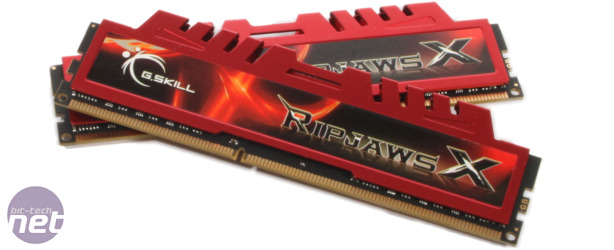
The Best Memory for AMD Lynx APUs
Our review of AMD’s new A8-3850 APU was largely positive, as while the processor was found to be lacking slightly in the CPU department, it more than made up for this with its excellent on-board GPU. What's more, the idea of being able play games using integrated graphics is actually a realistic option with a Lynx APU, as opposed to a glint in a marketing manager’s eye.As with all other onboard GPUs, the Radeon HD 6550D at the centre of our A8-3850 doesn’t come with its own pool of memory, so it requisitions a slice of system memory to use exclusively for graphics tasks. Unfortunately, though, for one reason or another, we only had time to take a quick look at how system memory frequencies affected the A8-3850’s 3D performance in our original review.
As the GPU portion of the Lynx APU shares the system memory, using faster memory effectively equates to overclocking the GPU's memory, resulting in improved 3D performance. We then wondered what effect higher-frequency memory would have on the Lynx APU's performance; is there a ceiling to how high frames rates can go by using faster and faster memory? We returned to the labs to find out.

We added a 4GB kit of G.Skill Ripjaw X memory to our test system to enable us to test at speeds above 1,600MHz
Test Setup
For testing we essentially used the same system from our original review. The one change to the specification was that we introduced a 4GB 1,866MHz CL9 kit of G.Skill Ripjaw X memory kit to enable us to test at higher frequencies. Changes to memory frequency and CAS latency were made in the BIOS, while keeping the reference clock the same throughout testing. We'll take another look at Lynx APU overclocking once we get our hands on some more capable motherboards, specifically those capable of locking off the SATA and USB sub-systems from the reference clock.As with the main review, we used Call of Duty: Black Ops and Left 4 Dead 2 as our test games, as both these games are very popular and relatively simple to run. We also used Windows 7 Home Premium 64-bit, as this is the most flexible and reliable 64-bit OS for testing these games.
Test Hardware
- 2TB Western Digital Caviar Black hard disk
- PC Power & Cooling Silencer 750W PSU
- ASRock A75 Pro4 motherboard
- 4GB (2x 2GB) G.Skill Ripjaw X 1,866MHz memory (CL9)
- Titan Fenrir TTC-NK85TZ CPU cooler

MSI MPG Velox 100R Chassis Review
October 14 2021 | 15:04








Want to comment? Please log in.